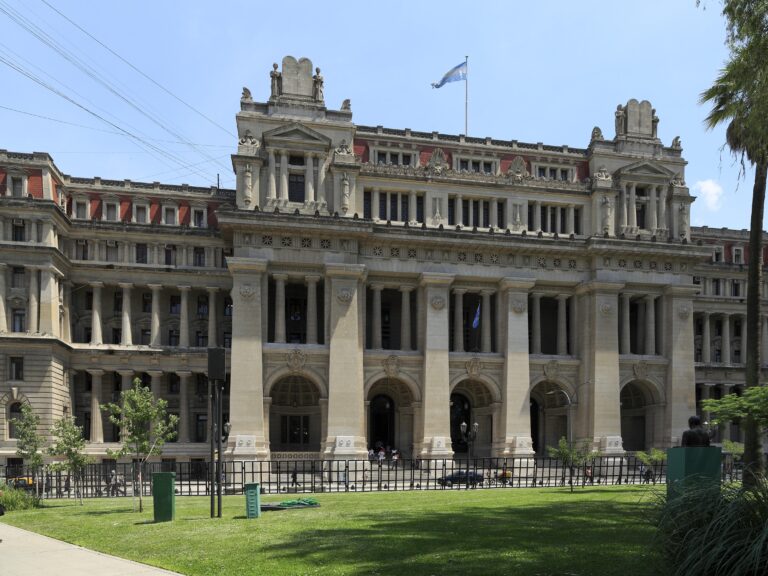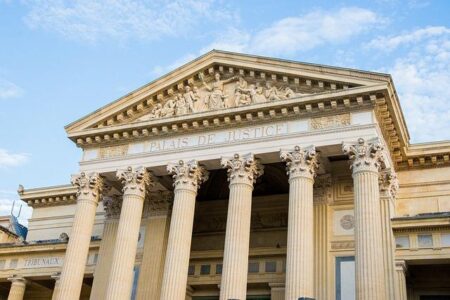In a landmark ruling that reverberates across Argentina’s political landscape, the country’s Supreme Court has upheld the prison sentence of former President Cristina Fernández de Kirchner. The decision marks a pivotal moment in the ongoing battle against corruption and underscores the judiciary’s role in holding powerful figures accountable. As Argentina grapples with issues of transparency and justice, this unprecedented verdict signals a critical test for the nation’s democratic institutions.
Argentina Supreme Court Confirms Prison Term for Ex-President Kirchner Amidst Corruption Allegations
In a landmark decision, Argentina’s highest judicial authority has affirmed the prison sentence handed down to former President Cristina Fernández de Kirchner. The ruling finalizes years of protracted legal battles centered on allegations of corruption and misappropriation of public funds during her tenure. The Supreme Court emphasized the importance of judicial independence and the rule of law, signaling a significant moment in Argentina’s ongoing fight against political corruption.
The decision, which has reverberated through both political and public spheres, highlights key points in the case:
- Charges: Accusations included illicit association, fraud, and money laundering linked to public works contracts.
- Sentence: The confirmed prison term will now be enforced, marking the first time a former Argentine president faces incarceration for corruption.
- Political Impact: The ruling is expected to reshape the political landscape and elevate debates about accountability and governance.
| Aspect | Details |
|---|---|
| Case Duration | Over 7 years |
| Appeals Filed | 3 major appeals |
| Sentence Length | 6 years imprisonment |
| Legal Significance | First ex-president convicted in corruption case |
Legal Implications and Political Repercussions of Supreme Court Decision on Argentine Democracy
The Supreme Court’s ruling to uphold the prison sentence for former President Cristina Fernández de Kirchner marks a watershed moment in Argentina’s judicial history. It underscores a growing commitment to accountability, sending a clear message that no political figure is above the law. However, this decision carries complex legal implications that may ripple through the nation’s justice system, including potential increases in appeals, challenges to judicial impartiality claims, and shifts in prosecutorial strategies against corruption. The judiciary now faces the challenge of balancing transparency with judicial independence amid an intensely polarized political landscape.
Politically, the decision acts as a catalyst, deepening divisions within Argentina’s already fractured society. Supporters of Kirchner view the verdict as politically motivated, fueling protests and galvanizing her party’s base, while opponents herald it as a victory for democracy and justice. This decision has triggered:
- Heightened political mobilization ahead of upcoming elections
- Public debates on the role of the judiciary in shaping political outcomes
- Intensified scrutiny of institutional checks and balances
| Impact Area | Potential Outcome |
|---|---|
| Judicial System | Increased political trials, legal reforms |
| Political Climate | Polarization and protests intensify |
| Public Trust | Fluctuations relating to judicial impartiality |
Strengthening Judicial Independence Recommended to Safeguard Transparency and Prevent Future Political Corruption
In a landmark ruling, legal experts and civil society advocates emphasize the urgent need to fortify judicial independence as a critical step toward ensuring transparent governance and curbing the resurgence of political corruption. This move is seen as essential not only for holding powerful figures accountable but also for restoring public confidence in democratic institutions. Key recommendations include:
- Establishing Immutable Legal Safeguards: Enacting clear legislation that shields judges from political pressures or interference.
- Enhancing Judicial Appointment Processes: Promoting merit-based, transparent selection criteria free from partisan influence.
- Increasing Transparency: Implementing open trial procedures and public access to judicial decisions.
Concrete measures to support this agenda involve institutional reforms aimed at empowering courts to operate autonomously while maintaining accountability. Recent data underscores the correlation between strong judicial independence and low corruption indices, illustrated in the following overview:
| Country | Judicial Independence Score | Corruption Perception Index |
|---|---|---|
| Argentina (post-reforms) | 68/100 | 40/100 |
| Chile | 75/100 | 67/100 |
| Brazil | 54/100 | 38/100 |
These figures reveal how reinforcing judicial autonomy aligns with enhanced transparency and reduces corruption risks, serving as a crucial blueprint for Argentina’s ongoing democratic consolidation.
In Summary
The Argentina Supreme Court’s decision to uphold the prison sentence for former President Cristina Fernández de Kirchner marks a pivotal moment in the nation’s ongoing struggle with corruption and judicial accountability. As the former leader faces legal consequences for her actions while in office, this ruling underscores the judiciary’s crucial role in reinforcing the rule of law in Argentina’s democratic framework. The implications of this verdict will undoubtedly resonate across the country’s political landscape, signaling a continued commitment to transparency and justice. Democracy Now! will continue to monitor developments in this high-profile case and its impact on Argentina’s future.




